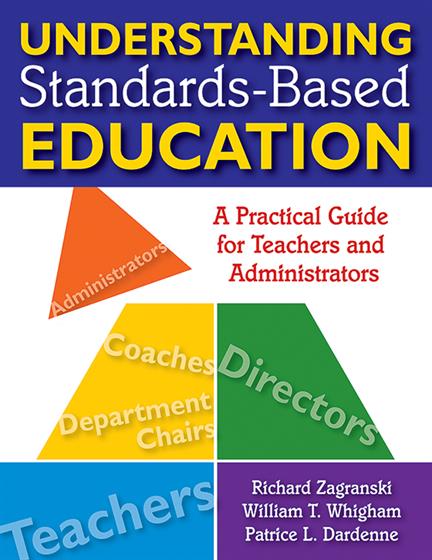List of Figures
Preface
Acknowledgments
About the Authors
1. Introduction
Relevant Versus Relative
The Problems
The Solution
Content and Intent
2. Traditional Versus Standards-Based Education
What Everyone Needs to Know
What Most People Need to Know
What Some People Need to Know
How Do We Get There From Here
Questions for Reflection
Summary
3. Accountability
Raise the Drawbridge, Flood the Moat
Surprise, Surprise, Surprise!
Accountability 101
What Everyone Needs to Know
What Most People Need to Know
What Some People Need to Know
Summary
4. Performance Objective
Touching All the Bases But Getting Thrown Out at Home
What Everyone Needs to Know
Defining Performance Objectives
Performance Objective Tips
What Everyone Needs to Know
What Most People Need to Know
What Some People Need to Know
Summary
5. Performance Assessment
What? Where? Why? How?
Summative and Formative
Eliminate A and D; Guess B or C
What Everyone Needs to Know
Assessment Strategies
From Standard to Assessment
What Most People Need to Know
What Some People Need to Know
Summary
6. Data
What Is Data and From Where Does It Come?
The Standards-Based Model and Data
What Everyone Needs to Know
Form Versus Function
Simplicity Is the Key
Student Portfolios
What Most People Need to Know
What Some People Need to Know
Summary
7. Unit Design
Units Create Focus
What Everyone Needs to Know
Aids for the Educator
Measuring Success
What Did You Do in School Today?
What Most People Need to Know
What Some People Need to Know
Summary
8. Lesson Design
Hey, I Just Follow the Curriculum
Questions to Ask
Where There's a Need, There's A Way
What Everyone Needs to Know
Lesson Design Steps
The Transfer and Retention of Learning
Lesson Design Planner
What Most People Need to Know
What Some People Need to Know
Summary
9. Differentiation
Teaching Versus Learning
Differentiation Defined
Learning Styles Versus Teaching Styles
What Everyone Needs to Know
Differentiated Step Lessons: Method 1
Sample Step Lessons Using Method 1
Differentiated Step Lessons: Method 2
Sample Step Lessons Using Method 2
Differentiated Classroom 101
What Most People Need to Know
What Some People Need to Know
Summary
10. Scaffolding
Defining Scaffolding
What Everyone Needs to Know
Tools to Develop Understanding
The Three P's of Scaffolding Pieces: Problems, Projects, and Presentations
Model Behavior
Sample Lesson With Scaffolding
What Most People Need to Know
What Some People Need to Know
Summary
11. Instructional Grouping
Grouping Defined
What Everyone Needs to Know
Grouping Size
So, What If Grouping Strategies Are Not Working? Jump Ship or Row to Shore?
What Most People Need to Know
What Some People Need to Know
Summary
12. Brain-Based Learning
What Everyone Needs to Know
The Male and Female Brains
Engage the Brain
Strategies for Meaningful Learning
Sample Lesson
Am I Doing It Right?
What Most People Need to Know
What Some People Need to Know
Summary
13. Reporting Progress
What Everyone Needs to Know
What Most People Need to Know
What Some People Need to Know
Easy...Easier...Easiest in Grading Systems
Summary
Glossary
References
Index




